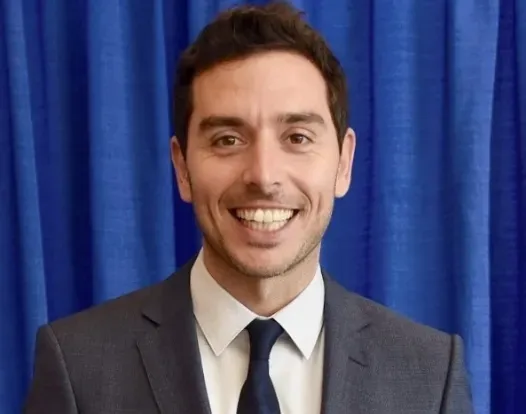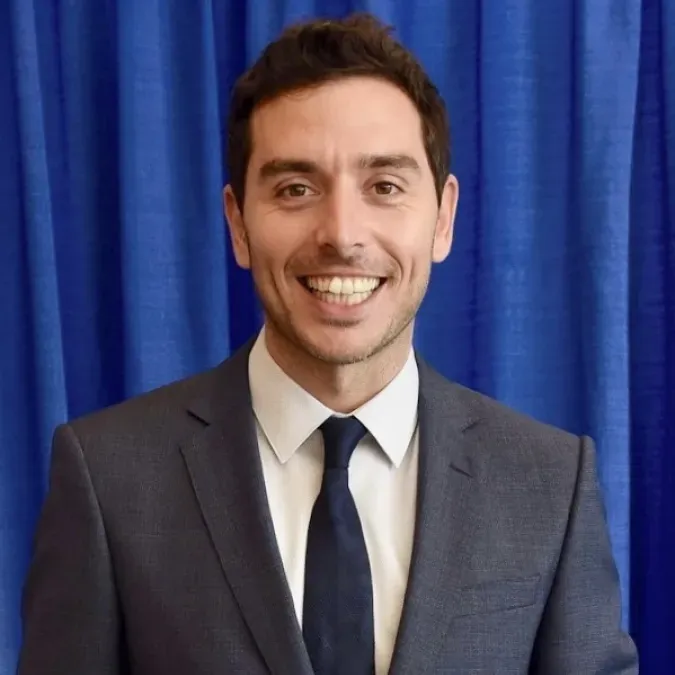These researchers have dedicated their careers to finding new treatments and cures for people with cancer.


Patients with head and neck cancers – the sixth most common cancer worldwide – need heightened and nuanced research for a better chance at life. Among this disease type, HPV-related oropharyngeal cancers are the most prevalent with an increasing rate of diagnosis, but many patients with these tumors do not respond to standard treatment. Dr. Oliva, a medical oncologist at the Institut Català d' Oncologia in Spain, relies on emerging research to help. Dr. Oliva explores how the human microbiome – all the bacteria, fungi, and viruses, that naturally live on and inside our bodies – can play a role in building patient immunity and targeting oropharyngeal cancers.
“There is an urge to find biomarkers that allow us to develop new treatment strategies for patients with HPV-related oropharyngeal cancers that are resistant to standard of care,” says Dr. Oliva. “The microbiome has been selected as one of the new hallmarks of cancer as of 2022, given its relevant role in tumor development and in antitumor immunity.”
ROMA: Preliminary & Pioneer Research
Using support from a 2019 Conquer Cancer Young Investigator Award (YIA), Dr. Oliva conducted a preliminary study – entitled ‘Role Of the Microbiome as a biomarker in locoregionally-advanced oropharyngeal carcinoma’ (ROMA) – that was the first of its kind in the field of microbiome research for head and neck cancers. Working with a team at the Princess Margaret Cancer Centre, he used next-generation DNA techniques to analyze the microorganisms present in samples of saliva, feces, and oropharyngeal carcinoma. They extracted and sequenced DNA to evaluate how cancer treatments can best work with these microorganisms to reduce resistance and improve immunity. The results from this YIA study informed the development of promising clinical trials for patients.
“Thanks to prior knowledge from the ROMA study, a couple of clinical trials are now evaluating microbiome-modulating strategies in patients with head and neck cancer to improve their response to therapies and, ultimately, survival,” says Dr. Oliva. “We found that some patients with oropharyngeal cancer have an unfavorable composition of oral/tumor as well as gut microbiome, and within those findings, some patients relapsed following therapy. This has provided the basis for evaluation of new therapeutic strategies,” says Dr. Oliva.
ROMA-2: Better Outcomes for Patients
Following ROMA’s success, Dr. Oliva and colleagues launched ROMA-2, a trial with nearly 30 patients, to determine whether they can modulate patients’ microbiomes to compositions that are more receptive to treatment. His multidisciplinary team of oncologists, post-doctorate biologists, nurses, and medical students – brought together by the YIA-funded ROMA project – is testing whether an oral drug containing a mix of “good” bacteria can favorably modify patient microbiomes.
“The second study demonstrated that this oral compound was safe and well-tolerated,” says Dr. Oliva, who is currently analyzing if he can modify the microbiome with the oral compound.
ROMA-3: Next Steps
Microbiome research continues to show promise for patients with HPV-related oropharyngeal carcinoma and other head and neck cancers, and Dr. Oliva is working toward his next steps in this niche space. A third iteration of the ROMA project – known as ROMA-3 – is already ongoing. He and team are comparing the tumor and gut microbiome of a Spanish cohort of patients with the data from the Canadian group studied during ROMA-1 and -2.
“We are looking for potential tumor and patient-specific differences across two different countries,” says Dr. Oliva. “We’re collaborating with Princess Margaret Cancer Centre in microbiome-modulating strategies in this patient population.”
From the initial ROMA study to ongoing trials at international scales, helping patients reach the best possible outcomes is at the core of all Dr. Oliva does to conquer cancer.
“I have national funding to support my research, and that is thanks to the expertise and body of knowledge I gained during the development of the initial YIA study,” says. Dr. Oliva. “The first ROMA project involved research at a basic level that has translated clearly into patient-focused clinical trials.”

